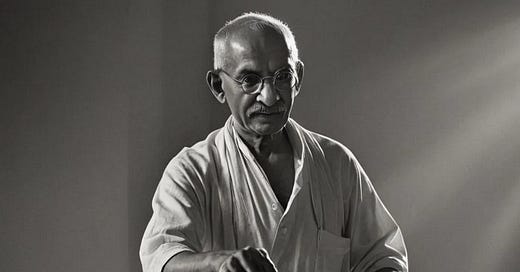On September 13, 1932, India woke up to learn that Gandhi had announced that he would begin a fast to the death in one week’s time. One of his long-time secretaries and biographers, Pyarelal, wrote a book describing it, titled ‘The Epic Fast.’ [PDF]
Gandhi, who had been in prison since January, was offended by a British decision to carve some India’s hundreds of millions of Hindus into a separate electorate. The so-called “untouchables,” known today as Dalits, were to vote separately for their own seats in the state legislative bodies. Since Gandhi was working to end caste discrimination, statutory division within the Hindu religion could only perpetuate it and must be resisted.
The British government had been warned of this possibility back in March, when the details were still being debated in London. In August, the decision was finalized, and Gandhi reminded them he was called to fast, starting September 20, unless all of India’s Hindus remained grouped together for voting purposes. He waited in prison for several weeks before the response came. Sorry, he was told, there will be no changes.
Their correspondence was released September 12, and made the papers the following day. Hindu leaders met to determine their strategy, and called for a national day of fasting on September 20, to show support. According to Pyarelal, millions participated.
Many leaders within the secular Indian National Congress were also incarcerated. Jawaharlal Nehru, who would become Prime Minister in 1947, was saddened when he learned of the fast. This was a side issue, and for Gandhi to pick this battle to throw his life away for was a terrible waste. But, as I’ll write in four more posts this month, Gandhi had a better read on the Indian people, and their capability for self-improvement.
Is there a cause that you support, but wouldn’t fight a battle for?



